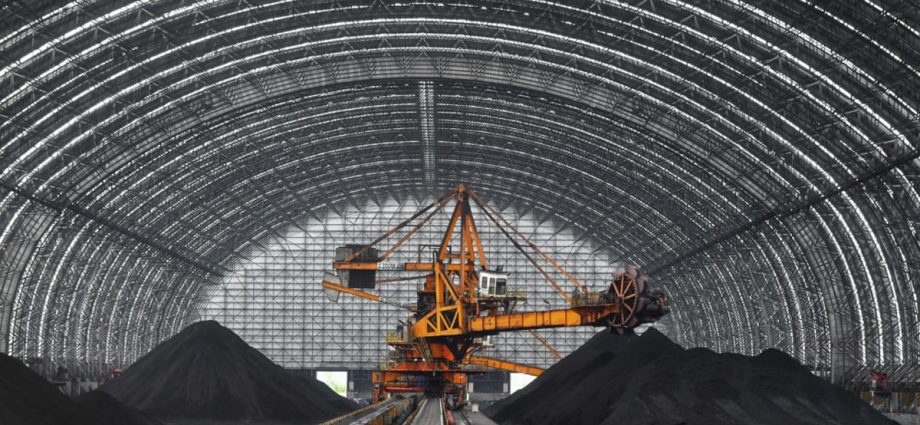
That’s yet another example of grotesque waste in a country whose slowing growth is increasingly weighing on the world economy.
It’s also evidence that we’re turning the corner on the years when China was the biggest culprit for rising global emissions. America’s diminishing appetite for coal has helped hold back greenhouse pollution over the past 15 years. China’s may do the same, on a far greater scale, over the next 15.
CHINESE COAL STOCKPILE IS SLOWLY DEGRADING
It’s easy to imagine a stockpile of solid fuel as a battery ready to discharge, a vault of gold bullion, or a strategic crude reserve waiting to be pumped out. Coal doesn’t work that way, however.
Instead, it’s more like a silo of corn that degrades and loses value the longer it’s left. Over time, it reacts with oxygen in the air and gradually loses potency. In extreme cases, this can cause stockpiles to heat up and ignite spontaneously. Even in less dramatic cases, a pile can lose about a quarter of its energy content each year.
Thinking about China’s reserves that way helps explain several factors in the market that otherwise seem baffling. For instance, the price of soot at Qinhuangdao used to be the mirror image of the national coal inventory: When inventories were high, prices at the port east of Beijing slipped because supplies were ample, and vice versa.
That relationship fell apart in early 2022. The last time China’s coal stockpile ballooned in the middle of the 2010s, prices were less than half their current level because sellers in an oversupplied market were struggling to offload their carbon at any price.

